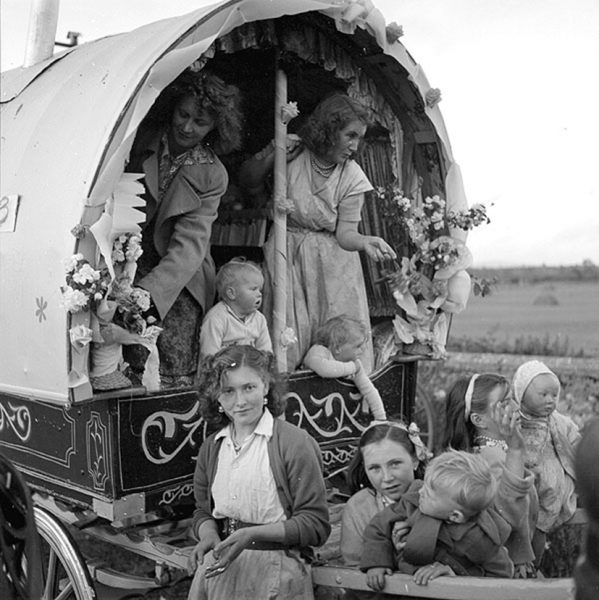Irish Traveller Culture to be introduced into the Irish curriculum

Shagnick Bhattacharya discusses the Irish government’s recent move to implement Irish Traveller culture into the national curriculum.
The Irish Traveller community is a traditionally nomadic group of indigenous people in the Republic of Ireland, making up about one per cent of the country’s entire population. The community represents a distinct ethnic group that is underrepresented in and misunderstood by Irish institutions. Throughout the country, many travellers are victim to severe discrimination. This has led to many adverse effects for members of this community involving a poor quality of life in general. Aiming to deal with the situation by ending discrimination and misconceptions against these people, the Irish government will be introducing a new educational framework to promote traveller culture within Irish schools.
The Irish Traveller community is a traditionally nomadic group of indigenous people in the Republic of Ireland, making up about one per cent of the country’s entire population
Statistics regarding the community are shocking in all aspects. Although this situation of discrimination against indigenous nomadic people is not unique to Ireland, Traveller mortality is four times that of the general population in the country. Traveller men die at least 15 years younger than their established Irish male counterparts, and Traveller women die at least 11 years younger. The Traveller population has an abnormally high suicide rate as well, with suicides accounting for 11 per cent of all Traveller deaths, which is about seven times higher than the average population. While they have a negligible presence in Ireland’s higher educational institutions, 15 per cent of the male prison population and 22 per cent of the female prison population was made up of Travellers according to a scholarly estimate from 2017. In 2011 it was also found that up to 82 per cent of Travellers were unemployed, in comparison to 17 per cent of the general population. All these data clearly indicate the presence of extreme forms of discrimination against Travellers based on their ethnicity.
While scholars today have generally been able to conclude that the Traveller community has had a continued presence in Ireland since the 12th century CE, their existence and historicity in the past was more or less ignored. Until recently, successive British administrations considered Travellers as belonging to the same category as ‘the Irish poor’. Many accounts of Traveller history also wrongfully imply them to be a ‘failed settled people’ or ‘drop-outs’ from the society rather than a unique ethnic community originating inside Irish culture. Even the Irish government’s efforts in 1963 to deal with the problem of discrimination were unsuccessful, since Travellers were misunderstood to be a deviant subculture of poverty rather than an ethnic group with its own history. Travellers historically lacked the abilities or lifestyles essential to establish themselves in history books, which is typical of a nomadic and oral culture where textual records aren’t typically created.
Many accounts of Traveller history also wrongfully imply them to be a ‘failed settled people’ or ‘drop-outs’ from the society rather than a unique ethnic community originating inside Irish culture
It has only been six years since Travellers were officially recognised as a distinct ethnic group in the Irish parliament. In September 2018 the National Council for Curriculum and Assessment (NCCA) was tasked by the then Education Minister to undertake an audit of Traveller culture and history in the curriculum. Following the audit findings of 2019 exposing the dire reality of a curriculum not reflecting the society adequately, a research report was released in February this year which aims to “provide an overview of what is currently known and has been recorded regarding the different aspects of Traveller culture and history”. This is being used to update the curriculum and teaching to better reflect Traveller culture and promote greater awareness of this ethnic minority.


